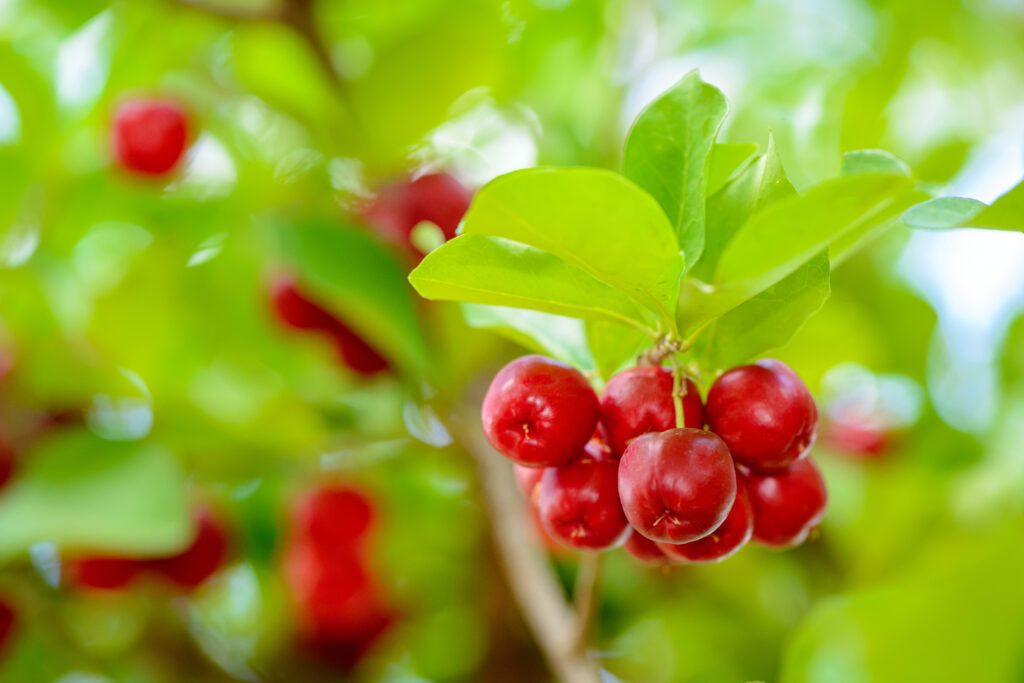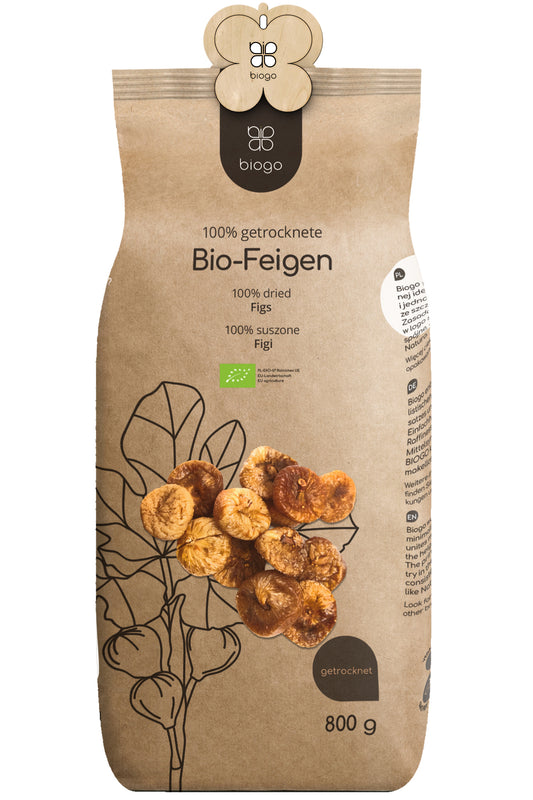Contents:
- Properties of Acerola
- Acerola — Rich in carotenoids
- When is it particularly worthwhile to use Acerola?
- Are there any contraindications to the use of acerola?
Acerola , also known as Barbados cherry or Antillean cherry, is a small fruit tree or shrub in the Malpygiaceae family, whose Latin name is Malpighia emarginata . It is native to subtropical and tropical regions of Central and South America and the Caribbean. Acerola has gained international recognition for its small, bright red fruits, which are not only delicious but also extremely rich in vitamin C, surpassing most known sources of the vitamin, such as oranges and lemons. In addition, these fruits contain a number of other valuable nutrients. Thanks to its unique nutritional properties, acerola is used not only in cooking but also in the pharmaceutical and cosmetic industries, where it is valued for its health and beauty benefits.
Properties of Acerola
Acerola is a true treasure trove of nutrients whose beneficial effects on human health cannot be overstated. Its greatest advantage is its record-breaking vitamin C content – 100 grams of fresh acerola fruit can contain 1,500 to even 4,500 mg of this vitamin, which is over 50 times more than a similar amount of oranges. This enormous dose of vitamin C makes acerola an excellent support for the immune system and also has antioxidant properties that protect the body from free radicals and support iron absorption.
In addition to vitamin C, these fruits are a rich source of vitamins A, B1 (thiamine), B2 (riboflavin) and B3 (niacin) and also contain vitamin E, which is crucial for skin and eye health.
Acerola also offers an impressive amount of minerals, including potassium, magnesium, calcium and phosphorus, which are essential for the proper functioning of the body:
- Maintaining healthy bones and teeth,
- Regulation of blood pressure,
- support the work of muscles and nerves.
Antioxidants such as carotenoids and bioflavonoids contained in acerola are important in the prevention of heart disease and also delay the aging process.
The nutritional values of acerola, including its richness in vitamins, minerals and antioxidants, make it not only tasty but also an extremely healthy addition to the diet, with comprehensive positive effects on body and mind.
Acerola — Rich in carotenoids
Acerola is also characterized by its high content of carotenoids – natural plant pigments that play an important role in the prevention of many diseases, including eye and heart disease. Thanks to their antioxidant properties, they help neutralize free radicals, thus protecting cells from oxidative stress and delaying aging processes. Due to the presence of these valuable compounds, acerola supports the immune system, but is also an important component of a diet that supports skin and vision health.
When is it particularly worthwhile to use Acerola?
Acerola , a treasure trove of vitamin C, is especially recommended during periods of increased antioxidant demand, i.e. in autumn and winter when immunity declines, during convalescence after illness, as well as in moments of increased stress and fatigue. In Poland, the availability of acerola in various forms - for example, in capsules as a food supplement, powder, juice and dried fruit - makes it easier to include it in the daily diet. Acerola powder can be a supplement to smoothies or yogurts in the morning, acerola juice can be a great refreshing drink, and dried fruit can be a healthy snack during the day or an addition to oatmeal or muesli. Thanks to the wide range of available forms, everyone can find the right way to supplement their diet with this valuable ingredient.
Are there any contraindications to the use of acerola?
Although acerola is a valuable source of vitamins and antioxidants, there are some contraindications to its use. People who suffer from or are prone to kidney stones should be cautious due to its high vitamin C content, which, in excess, can contribute to the formation of oxalate stones.
Additionally, people who are allergic to acerola fruit or who have had allergic reactions in the past to other fruits and plants in the Malpygiaceae family, to which acerola belongs, should also avoid consumption. It's always worth remembering moderation; even though acerola is healthy, an excess can lead to stomach problems such as diarrhea or malaise. As with any dietary supplement, it's worth consulting a doctor before starting to take acerola, especially if you are pregnant, breastfeeding, or have existing health problems.
THE PUBLISHER'S CHOICE
Dried dates 1 kg BIOGO
- €4,21
€4,95- €4,21
- Unit price
- / per
Almonds 1 kg BIOGO
- €11,69
€13,75- €11,69
- Unit price
- / per
Peeled sunflower seeds 1 kg BIOGO
- €3,04
€3,57- €3,04
- Unit price
- / per
Dried organic mango 400 g BIOGO
- €10,99
- €10,99
- Unit price
- / per
Dried White Mulberries 500 g ORGANIC
- €5,84
€6,87- €5,84
- Unit price
- / per
Popcorn (corn kernels) organic 1 kg BIOGO
- €5,84
- €5,84
- Unit price
- / per
Organic Ground Turmeric 500 g BIOGO
- €5,92
- €5,92
- Unit price
- / per
Milk thistle seeds 1 kg BIOGO
- €3,99
- €3,99
- Unit price
- / per
Dried organic figs 800 g BIOGO
- €30,12
- €30,12
- Unit price
- / per
Bag #changezbiogo Cotton v.2
- €3,27
- €3,27
- Unit price
- / per






































































































































